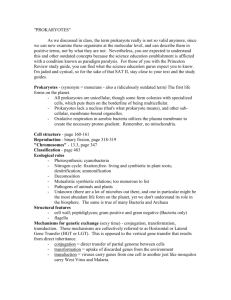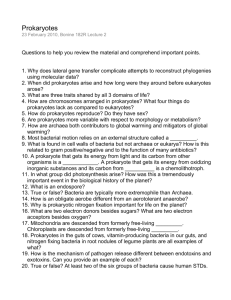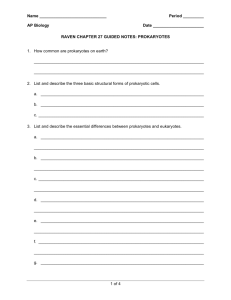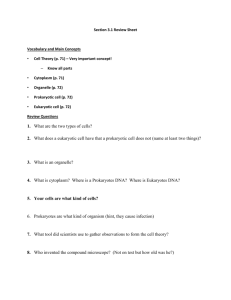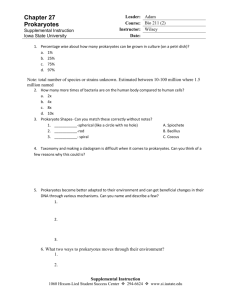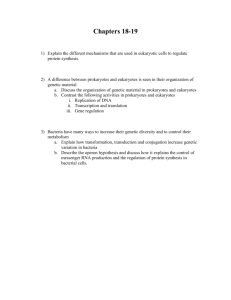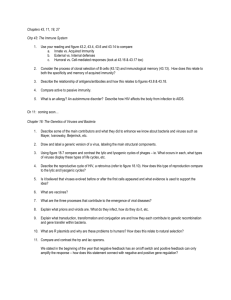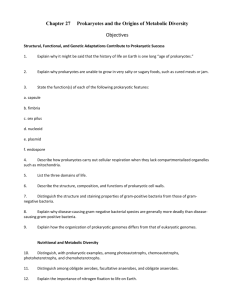18.5 Beneficial Roles of Prokaryotes
advertisement
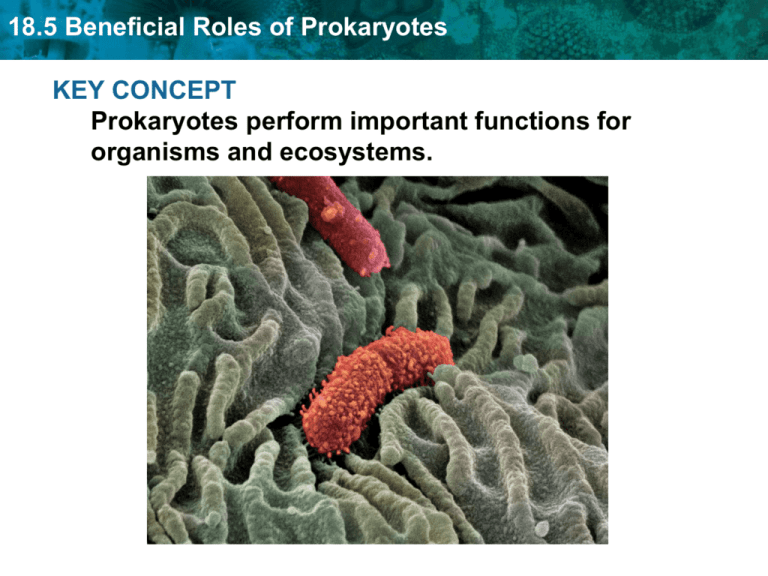
18.5 Beneficial Roles of Prokaryotes KEY CONCEPT Prokaryotes perform important functions for organisms and ecosystems. 18.5 Beneficial Roles of Prokaryotes Power Notes Describe two ways bacteria provide nutrients to humans. Which two gasses do bacteria help recycle in the ecosystem? -Make Vitamins -Break down food -Food Production (i.e. yogurt and pickles) Define bioremediation Give an example of bioremediation and describe how it works. 18.5 Beneficial Roles of Prokaryotes Prokaryotes provide nutrients to humans and other animals. • Prokaryotes live in digestive systems of animals. – make vitamins – break down food 18.5 Beneficial Roles of Prokaryotes • Bacteria help ferment many foods. – yogurt, cheese – pickles, sauerkraut – soy sauce, vinegar 18.5 Beneficial Roles of Prokaryotes Power Notes Describe two ways bacteria provide nutrients to humans. -Make Vitamins -Break down food -Food Production (i.e. yogurt and pickles) Define bioremediation Which compounds do bacteria help recycle in the ecosystem? -Oxygen -Nitrogen -Carbon -Sulfur Give an example of bioremediation and describe how it works. 18.5 Beneficial Roles of Prokaryotes Prokaryotes play important roles in ecosystems. • Prokaryotes have many functions in ecosystems. – photosynthesize – recycle carbon, nitrogen, hydrogen, sulfur – fix nitrogen 18.5 Beneficial Roles of Prokaryotes Power Notes Describe two ways bacteria provide nutrients to humans. -Make Vitamins -Break down food -Food Production (i.e. yogurt and pickles) Define bioremediation Process that uses microbes and other living things to break down pollutants Which two gasses do bacteria help recycle in the ecosystem? -Oxygen -Nitrogen -Carbon -Sulfur Give an example of bioremediation and describe how it works. Bacteria can digest oil from an oil spill and break it down into harmless chemicals. 18.5 Beneficial Roles of Prokaryotes Gulf oil spill 18.5 Beneficial Roles of Prokaryotes
